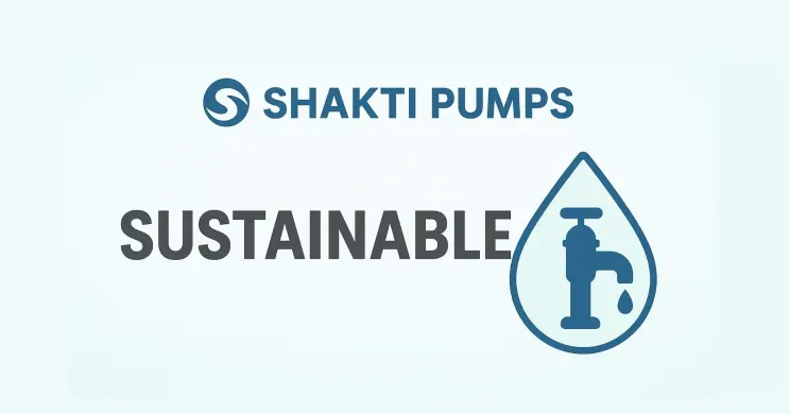
15 Days Price Change

 Niharika Maheshwari
Niharika Maheshwari

Niharika Maheshwari is a highly skilled with a proven track record in providing strategic ... Niharika Maheshwari is a highly skilled with a proven track record in providing strategic investment insights to both retail and High Net Worth (HNI) investors. With a strong academic background in finance and economics, Niharika brings a deep understanding of market dynamics and a keen analytical eye to her role. Read more
Summary
In an era where sustainable investment is not just a preference but a priority, Environmental, Social, and Governance (ESG) mutual funds in India are gaining prominence. This comprehensive overview introduces the top ESG mutual funds, offering a blend of ethical investment and competitive returns. Highlighting funds from Quantum, SBI, Kotak, Axis, and ICICI Prudential, the guide delves into their unique ESG focus, investment philosophies, and performance trends. For investors aiming to align their financial objectives with environmental stewardship and social responsibility, understanding these top ESG mutual funds is a step towards making informed, impactful investment choices. As the ESG landscape evolves, staying updated and consulting with financial advisors is crucial for navigating this dynamic and morally rewarding investment avenue.
orally rewarding investment avenue.
In the intricate mosaic of the investment world, a vibrant, compelling pattern is taking shape, one that intertwines profitability with purpose, and finance with sustainability. This pattern is embodied in the principles of Environmental, Social, and Governance (ESG) investing. Far from being a fleeting trend, ESG represents a fundamental shift in investment philosophy, one that is reshaping the investment landscape not just globally, but also in the burgeoning markets of India.
Sustainable investing transcends the traditional boundaries of financial gains by integrating factors that measure a company's impact on the environment, its contributions to social justice, and the integrity of its governance. This approach is not just about avoiding risks or adhering to moral standards; it's about actively pursuing opportunities that offer long-term sustainable returns while contributing to the global imperative of environmental conservation, social equity, and ethical governance.
As India strides forward on its path of economic growth, the relevance and urgency of sustainable investing are becoming increasingly evident. Fueled by a deepening understanding of climate change, social disparities, and the demand for transparent governance, both individual and institutional investors in India are beginning to embrace ESG funds as vehicles for achieving a harmonious blend of financial returns and positive societal impact.
The trajectory of ESG investing in India is a narrative of progressive awakening and strategic alignment with global sustainability goals. Historically, Indian investors leaned towards traditional investment avenues, but the winds are shifting. The country's economic landscape is witnessing a paradigm shift, catalyzed by heightened awareness of environmental issues, social inequality, and the need for robust corporate governance.
Government policies have played a pivotal role in this transformation. Initiatives such as the National Voluntary Guidelines on Social, Environmental, and Economic Responsibilities of Business, and the Securities and Exchange Board of India's (SEBI) mandate on Business Responsibility and Sustainability Reporting (BRSR), underscore the nation's commitment to fostering a sustainable economic ecosystem. These regulations not only encourage transparency and accountability but also pave the way for ESG funds to thrive.
Moreover, India's alignment with international sustainability frameworks, such as the United Nations’ Sustainable Development Goals (SDGs) and the Paris Agreement on climate change, further reinforces the country's stance on sustainable investment. This alignment not only positions India as a responsible player on the global stage but also attracts foreign investment into ESG funds, recognizing the country's potential for sustainable growth and innovation.
At the core of sustainable investing lie ESG funds, which are meticulously crafted to create portfolios that not only yield financial returns but also contribute positively to environmental protection, social development, and governance enhancement. But what sets ESG funds apart from their traditional counterparts?
ESG funds are distinguished by their selection criteria. These funds invest in companies that score high on ESG parameters, indicating their commitment to sustainable practices. The criteria encompass a wide spectrum: from environmental considerations like carbon footprint and energy efficiency to social aspects like labor practices and community engagement, and governance factors such as board diversity and corporate ethics.
In India, the variety of ESG funds is burgeoning, offering investors options to choose from mutual funds, exchange-traded funds (ETFs), and even thematic funds focusing on specific sustainability themes like clean energy or water conservation. This diversity not only provides investors with the flexibility to align their investments with their sustainability goals but also democratizes the access to sustainable investment options across different financial capacities and risk appetites.
The allure of ESG investing is not just in its ethical appeal but also in its strategic foresight. As the world grapples with climate change, social upheaval, and governance crises, ESG funds offer a beacon of resilience and responsibility. Investors are increasingly recognizing that companies aligned with ESG principles are not just doing good; they're also poised for robust growth, driven by sustainable practices that mitigate risks and harness new opportunities in a rapidly evolving global landscape.
In India, the tapestry of sustainable investing is rich and diverse, reflecting the country's unique environmental challenges, social dynamics, and governance structures. From combating pollution and conserving biodiversity to promoting inclusive growth and ensuring corporate accountability, ESG investing in India is not just about generating returns; it's about shaping a future that's equitable, sustainable, and prosperous.
The Indian market's embrace of ESG investing is not just a reflection of global trends but also a response to the country's own environmental and social imperatives. As home to some of the world's most populous cities and vast natural resources, India faces pressing challenges like air pollution, water scarcity, and social inequality. These challenges underscore the necessity and potential of ESG investing to drive transformative change.
Moreover, the Indian investor base is evolving. A growing cohort of young, informed, and socially conscious investors is looking beyond the traditional metrics of financial performance. They seek investment avenues that resonate with their values and aspirations for a better world. ESG funds, with their blend of ethical investment and financial prudence, are meeting this demand, marking a new era in the Indian investment landscape.
The rigorous selection process of ESG funds sets them apart. It's not just about filtering out companies involved in detrimental practices; it's about proactively identifying leaders in sustainability and governance. This process, often supported by sophisticated analytical tools and comprehensive ESG rating systems, ensures that the funds invest in companies that are not only market leaders but also pioneers in sustainability.
However, the landscape of ESG funds in India is not without its complexities. Navigating this landscape requires an understanding of the nuanced criteria used to evaluate companies, the diverse thematic focus of different funds, and the varying levels of risk and return. For investors, this means not just choosing any ESG fund, but selecting one that aligns with their specific sustainability goals, risk tolerance, and investment horizon.
One of the critical questions in the minds of potential investors is whether ESG funds can match or even outperform traditional funds in terms of financial returns. The answer, increasingly supported by research and market performance data, is affirmative. Studies have shown that companies with high ESG ratings often exhibit better risk management, stronger innovation capabilities, and greater resilience to market volatility, translating into robust financial performance.
In India, ESG funds have demonstrated commendable performance, with several funds delivering returns that rival or surpass those of mainstream funds. For instance, [insert specific examples of ESG funds and their performance]. This strong performance is not just a testament to the financial viability of ESG investing but also a powerful rebuttal to the notion that ethical investing comes at the cost of financial returns.
However, it's essential to approach these performance metrics with a nuanced perspective. ESG investing is inherently long-term oriented, and the true measure of performance extends beyond immediate financial returns. It encompasses the broader impact on environmental conservation, social development, and governance enhancement, aspects that are increasingly pivotal in a world grappling with sustainability challenges.
Investing in ESG funds offers a multitude of benefits that extend beyond financial returns. Firstly, it allows investors to contribute positively to environmental protection. By channeling capital towards companies that prioritize sustainable practices, investors play a direct role in promoting clean energy, resource conservation, and environmental stewardship.
On the social front, ESG funds support companies that foster inclusive growth, fair labor practices, and community engagement. This alignment with social justice not only resonates with the values of socially conscious investors but also contributes to building equitable and cohesive societies.
From a governance perspective, ESG funds promote transparency, accountability, and ethical leadership in the corporate world. By prioritizing companies with robust governance structures, investors support the establishment of standards and practices that ensure corporate responsibility, safeguard shareholders' interests, and enhance overall trust in the business ecosystem.
While the benefits of ESG investing are clear, it's also important to navigate its challenges and considerations with a strategic eye. One of the primary challenges is the lack of standardization in ESG criteria and ratings. Different ESG rating agencies may have varying methodologies, leading to discrepancies in company evaluations. For investors, this necessitates a deeper look into the criteria and methodologies used by ESG funds to ensure alignment with their own values and investment goals.
Transparency and reporting are other critical areas. While companies are increasingly disclosing their ESG practices, the depth and authenticity of this reporting can vary. Investors need to be vigilant and seek funds that prioritize companies with robust, transparent, and comprehensive ESG reporting.
Moreover, balancing profitability with sustainability can sometimes be a tightrope walk. Investors may face dilemmas when high-return opportunities clash with ESG principles. It requires a long-term perspective and a firm belief in the intrinsic value of sustainable investing to navigate these complex scenarios effectively.
Investing in ESG funds in India is becoming increasingly accessible, thanks to a growing awareness and the proliferation of investment platforms. Here's a step-by-step guide to getting started:
Research and Select ESG Funds: Start by researching ESG funds available in the Indian market. Look into their investment philosophy, ESG criteria, past performance, and fund management team. Platforms like [insert specific platforms] provide comprehensive information and ratings on various ESG funds.
Assess Alignment with Your Goals: Ensure that the fund's ESG focus aligns with your values and investment objectives. Consider factors like the thematic focus of the fund (e.g., clean energy, social equity), risk level, and the time horizon of your investment.
Open a Demat and Trading Account: If you don't already have one, open a Demat and trading account through a reputed broker or an online investment platform. This account will be used to buy and sell mutual fund units or ETFs.
Invest and Monitor: Once you've selected an ESG fund, you can invest through a lump sum or a Systematic Investment Plan (SIP). After investing, it's crucial to monitor your investment, not just in terms of financial performance but also for adherence to ESG principles over time.
The future of ESG investing in India is bright and promising. With an increasing number of investors prioritizing sustainability, coupled with supportive government policies and global sustainability mandates, ESG investing is poised for robust growth. Technological advancements, such as AI and big data, are expected to enhance ESG analysis, making it more precise and comprehensive.
Furthermore, the integration of ESG principles is likely to become a norm rather than an exception. As awareness grows, companies that fail to adopt sustainable practices may face financial and reputational risks, while those embracing ESG principles are likely to flourish, attracting investment and driving innovation.
Top ESG Mutual Funds in India
the top ESG mutual funds in India, known for their focus on investing in companies with strong Environmental, Social, and Governance (ESG) practices. These funds aim to provide investors with the opportunity to contribute to sustainable and ethical practices while seeking financial returns. It's crucial to note that the performance and management of these funds could change, so it's advisable to conduct thorough, up-to-date research and consult with a financial advisor before investing.
Quantum India ESG Equity Fund
Focus: Invests in shares of companies that meet the fund's ESG criteria. It's known for a stringent selection process, emphasizing companies with sustainable practices.
Performance: Historically, this fund has shown resilience and competitive returns, but as with any investment, past performance is not indicative of future results.
SBI Magnum Equity ESG Fund
Focus: This fund selects companies that score high on ESG parameters, aiming to invest in businesses that are not just financially sound but also responsible.
Performance: The fund has a long-term investment horizon and has been recognized for its stable performance and adherence to ESG principles.
Kotak ESG Opportunities Fund
Focus: The fund invests in a diversified portfolio of stocks that are screened for positive ESG performance, aligning investors' ethical and financial objectives.
Performance: It aims for growth by investing in companies with sound ESG practices, targeting those that show potential for sustainable profitability.
Axis ESG Equity Fund
Focus: This fund is known for its rigorous assessment of ESG factors, investing in companies that demonstrate ethical practices, social responsibility, and strong governance.
Performance: The fund seeks to balance risk and reward by investing in companies with robust ESG frameworks, aiming for long-term capital appreciation.
ICICI Prudential ESG Fund
Focus: The fund invests in companies that are leaders in their industry in terms of ESG practices, aiming to generate sustainable and responsible long-term growth.
Performance: It focuses on companies with sound governance structures, sustainable environmental policies, and impactful social practices.
When considering an ESG mutual fund, it's important to look at the fund's investment philosophy, its performance history, the transparency of its ESG criteria, and how it integrates ESG considerations into its investment process. Additionally, fees, fund manager expertise, and the fund's approach to shareholder engagement and voting are also critical factors.
Investors should also note that the ESG landscape is continually evolving, with new funds entering the market and existing funds adjusting their strategies to better meet the needs of socially conscious investors. Regularly reviewing and staying informed about your ESG investments is crucial in aligning your portfolio with your personal values and financial goals.
ESG investing represents more than just an alternative investment strategy; it embodies a profound shift in how we perceive and interact with the corporate world. In India, amidst the country's unique challenges and opportunities, ESG funds offer a pathway to align investment decisions with environmental stewardship, social responsibility, and ethical governance.
While challenges remain, the trajectory of ESG investing is clear. It is not just reshaping portfolios but also redefining the very essence of value and growth. As we move forward, the confluence of ethical investing and financial prudence through ESG funds is set to sculpt a future that's not just prosperous, but also sustainable and just.
In this transformative era, investors have the power to be agents of change. By choosing ESG funds, they are not just securing their financial future but also contributing to a world where growth is inclusive, opportunities are equitable, and the planet is preserved for future generations. The journey of ESG investing in India is just beginning, and it promises to be as rewarding as it is impactful


























Independent Research Powered By - Actionable data



Looking to buy unlisted shares or need guidance on the investment process? Our expert Private Equity Advisors are here to assist you with accurate information, real-time pricing, and seamless execution.
Want to sell unlisted shares, liquidate your ESOPs, or understand the step-by-step process of liquidation? Connect with our Buying Team for smooth coordination, quick evaluations, and end-to-end support.
Planning to build or grow your portfolio? For Mutual Fund investments, PMS solutions, tailored portfolio creation, and overall wealth management, our dedicated Wealth Team is ready to guide you.